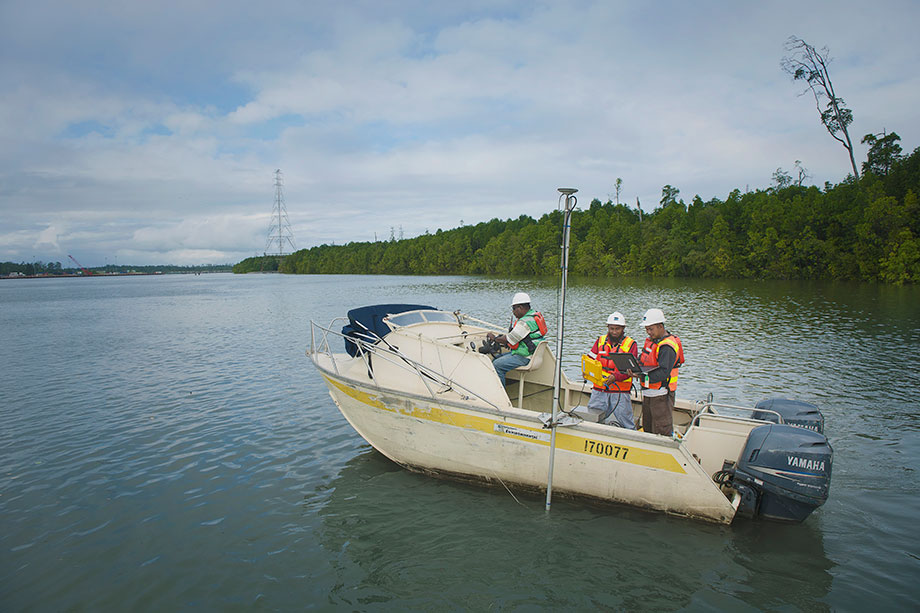Freeport Indonesia’s long-term environmental monitoring program is designed to monitor potential environmental impacts through routine measurement of air quality, biological, hydrology, sediment, and meteorological characteristics in our entire operations area.
In the last 4 years we have received an average of 15,000 samples for analysis that have yielded more than 199,000 separate analysis used to develop scientific information needed for managerial decision making related to our operation that enables us to minimize and mitigate environmental impacts.
Freeport Indonesia has an environmental laboratory in the area that analyzes data to be used in monitoring programs. This laboratory acquired ISO 17025 quality standard certification to serve as an analytical laboratory from the Indonesian National Accreditation Committee and is registered with the Environment Ministry as an Environmental Laboratory. As part of environmental supervision and audits conducted by the Government of Indonesia, Environmental Supervision Officers take water, sediment, fish, surface water, and stack emission samples. Results routinely confirm data from Freeport Indonesia.

In 2002, Freeport Indonesia submitted to the Government of Indonesia a detailed Ecological Risks Assessment report on its tailings management system that evaluated potential paths affecting the health of flora, fauna and humans. This detailed assessment reinforces the grounds for approving the tailings management system under the AMDAL.
In 2002 a study was conducted on the impacts of tailings on the health of the local population and biodiversity. The study conducted from various aspects was reviewed for the validity of its methodology and the conclusion was reached by an independent panel consisting of reputable experts. The study report indicated no evidence of threats to the ecosystem and to human health. Nevertheless, the study report called for further measures to be taken. As the tailings area cannot be fully restored to its original state, occurrence of new conditions would need to be monitored.
In 2018, our biology program monitored more than 55 sampling locations for a total of 117 monitoring activities encompassing the monitoring of nekton using trawls and gillnets, benthos, plankton, and metal uptake in the flesh of fish and shrimp. Recent monitoring results indicate that flesh samples from fish and shrimp in the tailings area were fit for consumption in accordance with Indonesian food quality standards.
Kami menghimbau para pencari kerja untuk berhati-hati dan mewaspadai beragam modus penipuan perekrutan yang mengatasnamakan PT Freeport Indonesia. Dalam setiap proses rekrutmen dan penerimaan karyawan, PT Freeport Indonesia maupun konsultan rekruitmennya tidak memungut biaya apapun.
Untuk melihat lowongan, silakan akses melalui link berikut: ptfi e-recruitment
Untuk melihat informasi magang, silakan akses melalui link berikut: Internship Program
